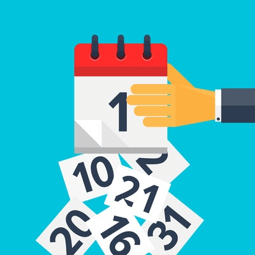Mastering the Close Date Conundrum
February 17, 2016

 Predicting close dates is one of the most challenging aspects of accurate forecasting in complex sales environments. It’s particularly difficult in new business situations where the vendor has no past history of successfully selling to the prospect. Under these circumstances, it can be hard for the sales person to make a well-informed initial judgement as to when the opportunity is likely to close.
Predicting close dates is one of the most challenging aspects of accurate forecasting in complex sales environments. It’s particularly difficult in new business situations where the vendor has no past history of successfully selling to the prospect. Under these circumstances, it can be hard for the sales person to make a well-informed initial judgement as to when the opportunity is likely to close.
It’s easy to see why these initial estimates often prove to be inaccurate. The challenge is compounded by the fact that most CRM systems will not allow you to create a new opportunity without entering a close date. So it’s no surprise that this initial prediction is no more than a guesstimate, and often requires at least one adjustment.
But that first adjustment is often just the start of a series of slippages, to the point where it’s hard to have any confidence that even the very latest projected close date will actually be achieved…
If you’ll forgive me for stating the obvious, complex sales are - inevitably - complicated. There are many moving parts, and some are often unknown and may be unknowable. But we can and should at least seek to systematically eliminate the unjustified speculation. Here’s how I suggest you might want to go about this:
BENCHMARK WINNING DEALS
Start by benchmarking your winning deals. Calculate how long it typically takes a well-qualified opportunity to close from each stage in your sales pipeline. In some situations, it may be helpful to take deal value into account. If this is a valid predictor in your situation, you may want to refine these time-to-close benchmarks to reflect low, average and high value opportunities.
If a sales person is predicting a close date that is significantly shorter than other similar opportunities have actually taken in the past, it is your responsibility to challenge their assumptions, and require them to credibly justify why any opportunity should be regarded as a “special case”. If they cannot, you should instruct them to move the close date back (and then encourage them to prove you wrong!).
MEASURE INDIVIDUAL SALES PEOPLE’S ACCURACY
You also need to reflect on the individual behavioural differences between your sales people. Some will undoubtedly have a pattern of optimism when it comes to close dates. Others (probably fewer in number) will have a track record of conservatism when it comes to close dates. It’s important that you take these factors into account when reviewing their projected close dates.
DON’T AUTOMATICALLY BELIEVE THE PROSPECT
The prospect may tell your sales person that they expect to make a decision by a given date. But quite often your prospect will significantly underestimate the amount of time it is going to take for their organisation to achieve consensus and get to the point where they are ready to place an order.
The worst thing your sales person could do is to take their estimate at face value without attempting to understand the detail of the prospect’s decision-making and approval process. Working backwards from the prospect’s desired decision date can often highlight a number of untested or unrealistic assumptions.
You then need to compare the prospect’s desired decision date with the actual time taken for similar deals to reach closure from the current stage in the sales process and, if necessary, reflect a more realistic close date in your CRM system.
ASSESS CONFIDENCE IN CLOSE DATE
Sales organisations are used to being asked to apply probabilities to individual opportunities based on their assessment of the likelihood of the deal being won. I’ve written here about the two key considerations that need to underpin these probability calculations. But that isn’t the only probability we ought to assess.
We also need to assess our confidence in the current projected close date. If the close date stands up to robust evaluation, and is supported by clear evidence that a truly compelling event exists or that the prospect is likely to complete the necessary steps to get the decision made by the predicted date, then our confidence is likely to be high (but will rarely be 100%).
On the other hand, if a number of uncertainties or unresolved dependencies remain, even if the close date represents our best estimate, then our confidence in that date actually being achieved is likely to be significantly lower, and the chances of the decision being deferred significantly higher. In this case, our decision date confidence should legitimately be much lower than 100%.
GET YOUR SALES PEOPLE TO JUSTIFY THEIR JUDGEMENT
You would be unwise to always accept your sales person’s assessment as to the likely close date for every opportunity. Depending on how opportunities conform to the patterns you have identified, you may want to require sales people to justify their judgements when the projected outcomes differ significantly from the norm.
IN CONCLUSION
If you have a low value, high volume sales environment, paying attention to close date realism on individual deals could well be an unnecessary complication. But if you have a high value, relatively low volume sales environment - and in particular if the timing of a handful of individual deals could make or break your quarter, you need to pay particularly careful attention to the assumptions that underpin projected close dates.
What techniques have helped you improve your organisation’s close date accuracy? Please share the lessons learned below.


Comments